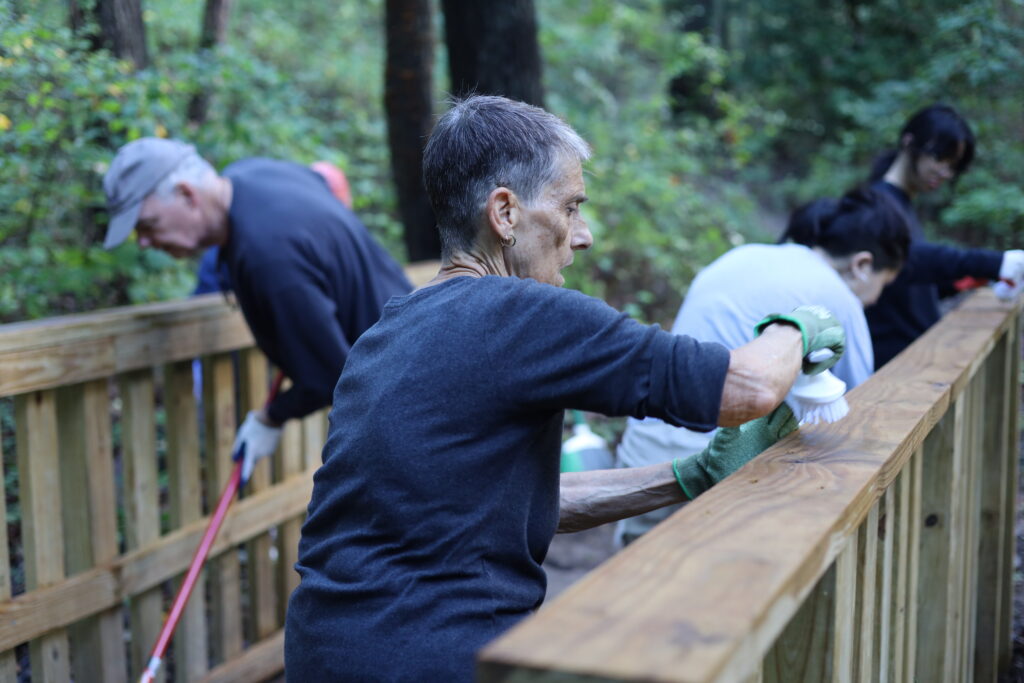.
.
Volunteer Fairfax has a virtual book club. It’s part of our free online Volunteer Management Training Program, and readers discuss subjects of importance to those of us in the human services fields, and who work with, supervise, or are volunteers. In November, we’ll be talking about Wonder Drug, by Stephen Trzeciak, M.D. and Anthony Mazzarelli M.D. of Cooper University Health Care. To quote the back of the book, the authors “illuminate, through neuroscience and captivating stories … how being a giving, other-focused person is a secret superpower. … Kinder people not only live longer, they also live better.”
Volunteering makes a difference for those who serve, and very much so for older people. We’ve heard this many times, and the book backs it up with brain MRIs, cognitive testing and longitudinal studies. The Mayo Clinic agrees. According to them, three top benefits older adults reap from volunteering are:
- Dopamine – the feel-good hormone – is released when a person volunteers, reducing stress which helps to reduce the likelihood of physical illnesses such as heart disease and stroke.
- Serving others creates a sense of purpose and of being needed, which can be critically important for those who have retired from a lifetime of working, or whose families have moved away. Renewed purpose brings renewed vigor and optimism.
- Volunteering creates a new social community among volunteers, based on shared interests and attitudes, and lessens loneliness and social isolation.
At RSVP-Northern Virginia, we see these benefits firsthand and often. Last year, 187 RSVP volunteers, the oldest of whom is 83, gave 9,883 hours of service to 39 local organizations such as Food for Others, the Shepherd’s Centers, and Meals on Wheels. And here’s what they had to say, when we asked what volunteering means to them:
Shelley, who has been an RSVP volunteer longer than any of the current staff, puts it bluntly: “I am helping my community, but I’m also helping myself. I’m active not in just in an ‘I play pickleball’ way, but my heart is active, strong, loving, and filled every day with gratitude for what I have, and what I can give.”
Ruth, who brings her cheerful nature to so many of our events, says, “After my retirement I knew I wanted to volunteer my time in some capacity and found RSVP to be the perfect fit for me. I can’t commit to long term situations but find I receive satisfaction from one-off projects such as Welcome Wednesdays. I feel good about providing for the needs of others, along with having the opportunity to share those occasions with other volunteers.”
Uma, who volunteers regularly with her husband Chandra, hit every one of the bullet points above! “Volunteering gives us a sense of purpose. Contributing our time to various causes to make a positive change gives us a feeling of achievement. The interaction with people from diverse backgrounds in our RSVP group keeps us mentally stimulated as we learn of others’ perspectives and hear about volunteer activities, they have enjoyed which we may want to try too. Volunteering also keeps us physically active, which is important as we age. This combination of mental engagement, physical activity and social interaction gives us a sense of accomplishment and fills the gaps in our lives, in addition to keeping us mentally and physically healthy. We’re grateful if we can make a difference in somebody’s life, small as it may be.” Volunteering: it’s a habit for life.


